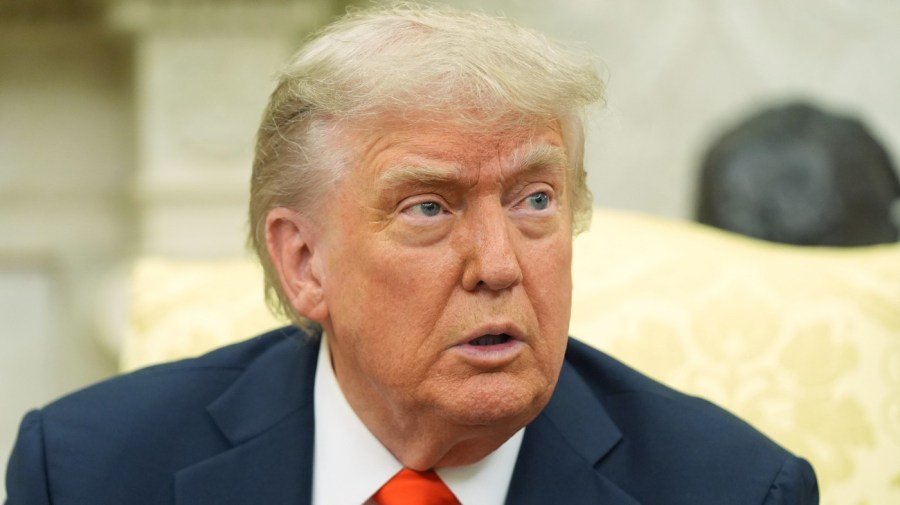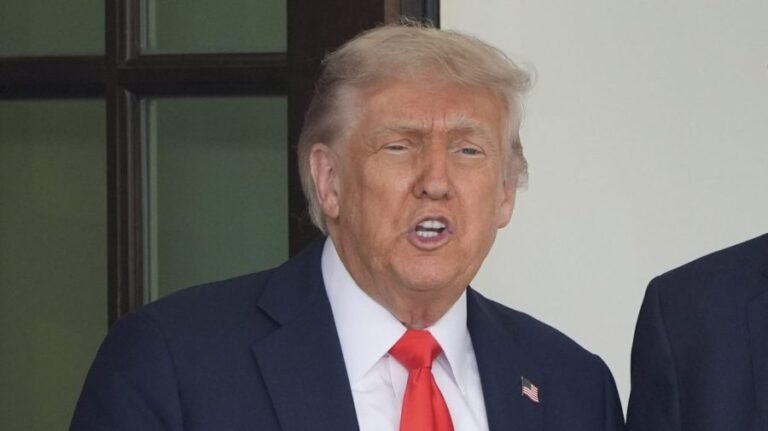
Amid a flurry of civil rights and Title IX investigations, the Trump administration has reopened K-12 schools and universities, signaling a complete 180-degree shift in the interpretation of the mandates.
The Trump administration is fighting schools over transgender athletes, bans on Native American mascots and Chicago’s “Black Students Success Plans.”
The switch from the previous administration has caused whiplash for schools, with advocates warning students some complaints may not be worth pursuing.
“The Trump Administration has created dumpsters for so-called civil rights violations that are distractingly unresponsive to actual acts of violence, harassment, discrimination and abuse in our nation’s educational institutions,” says Shaun Harper, a professor of education, public policy and business at the University of Southern California.
“It is painfully apparent that destructive politicized attacks on DEI are far more important to them than are efforts to ensure the actual civil rights of American students, families and educators,” he added.
The most drastic change has been in the handling of cases involving transgender athletes.
The Biden administration notably moved to add protections for LGBTQ individuals to Title IX, a civil rights law that protects students against sex-based discrimination.
Former President Biden also proposed protections for transgender students, such as forbidding overarching bans on transgender women in girls’ sports, but withdrew the proposal before President Trump took office, so the new president could not take the provision and alter it.
Under the Trump administration, dozens of schools have come under fire with alleged Title IX violations over transgender athletes.
The biggest threat occurred against California after the Trump administration said it would pull federal funding from the state following a transgender high school track and field athlete qualifying to compete in the state championship.
“It’s definitely been tough to have students come to us who are considering filing an Office of Civil Rights (OCR) complaint because they’ve experienced discrimination at their school, and have to sort of say, ‘I’m not even sure if it’s a good idea at this moment,’ given the way that the Trump administration is enforcing Title IX,” said Emma Grasso Levine, senior manager of Title IX Policy and Programs at the Title IX advocacy project Know Your IX.
“Having OCR suddenly stop being an option for many students because of the discriminatory way that the Trump administration is operating … really does limit mechanisms for accountability to ensure that schools are handling Title IX cases and preventing sex-based harassment,” she added.
In a statement to The Hill, Department of Education spokesperson Julie Hartman said the Trump administration is “restoring civil rights law and reversing the damage inflicted by the Biden Administration, which stretched the scope of federal anti-discrimination law beyond its statutory purview.”
Hartman added, “By enforcing the law as it is written, the Trump Administration’s OCR is using its personnel and resources responsibly to protect all Americans and eliminating wasteful and unfounded investigations.”
While the Trump administration has been vague in its definition of what diversity, equity and inclusion (DEI) initiatives are at schools, the civil rights investigations the Education Department is opening gives a glimpse at its meaning.
Chicago Public Schools is currently under investigation over “Black Students Success Plans” the district made, without making similar plans for students of other ethnicities.
The Education Department launched a probe against New York State’s Education Department after the state department threatened to strip funding from a school for having a Native American mascot.
“Forcing them to change the name, after all of these years, is ridiculous and, in actuality, an affront to our great Indian population. The School Board, and virtually everyone in the area, are demanding the name be kept,” Trump said about the incident.
Supporters of the president are encouraged by the rapid switch in gears in what investigations are brought to schools, pointing out some families have been waiting four years for this.
“The [Biden] administration had a pretty clear stance in favor of what they called equity, but I argue was really racial favoritism and an ideology in favor of identity politics,” said Jonathan Butcher, the Will Skillman senior research fellow in education policy at the Heritage Foundation.
“The Trump administration is, I believe, appropriately viewing the Civil Rights Act in terms of colorblindness and meritocracy and trying to preserve, or at least restore those things to American public life and in public law,” he added. “It should be a relief to local educators and families who are concerned that the transgender movement has taken over our view of what it means to be male and female.”
The relief by some parents – and fear by others – of what cases will be prioritized highlights the struggle with the political ping pong that occurs when the Education Department switches hands.
“Even with the ping ponging, it doesn’t mean that the Trump administration is accurate, and they’re putting forward an unlawful and wrong interpretation of the law by distorting the law and using it as a way to require discrimination against students, and especially students from vulnerable communities,” said Shiwali Patel, senior director of Safe and Inclusive Schools.
There are concerns about how the Trump administration is using the Office of Civil Rights, but also if it will even exist by the end of his presidency.
Many employees in the office were fired during the Education Department’s reduction in force and Trump has floated moving OCR to the Department of Justice. Some advocates have said the Department of Education will be unable to uphold its legal obligations, especially as OCR cases were already backlogged before the layoffs.
“They’re prioritizing weaponizing these laws to require harm against students, against vulnerable groups of students, with the few resources that they have, because now we’re now dealing with an OCR that is at almost half of what it used to be because of all the cuts and the layoffs that the Trump administration has engaged in,” Patel said.
The North Star for both sides is passing laws either in Congress or on the state level to fight against the executive changes that happen to these investigations every four years.
“I think the states have adopted laws that have prohibited boys in girls’ sports,” Butcher said. “All of these things that states are doing are codifying what the Trump administration is now supporting.”
“At the federal level, it’ll definitely be up to Congress, of course, when it comes to putting something into law. And I think that federal lawmakers would do well to be mindful not only of what the Civil Rights statutes say on this issue, but also what voters are feeling like,” he added. “Voters, I think, have made it clear through surveys that these positions on, again, boys getting access to girls’ private spaces and sports, are unpopular.”


